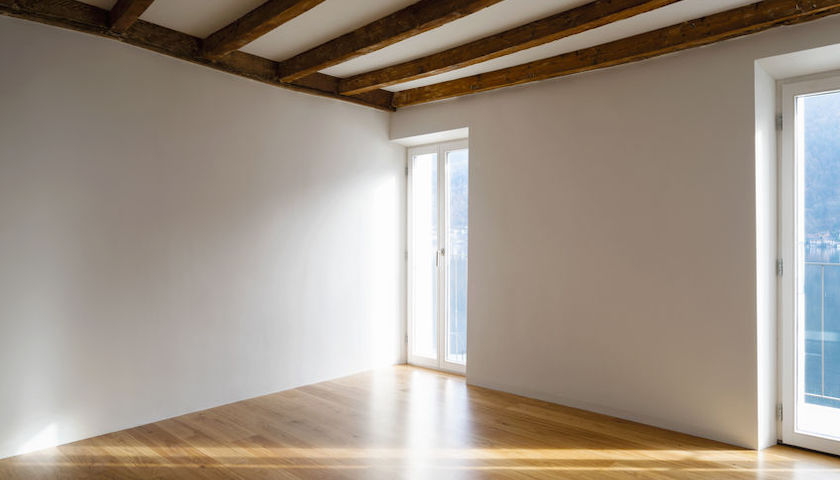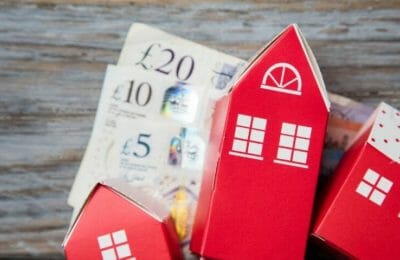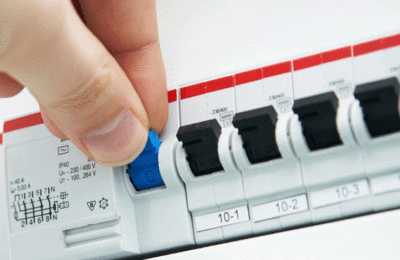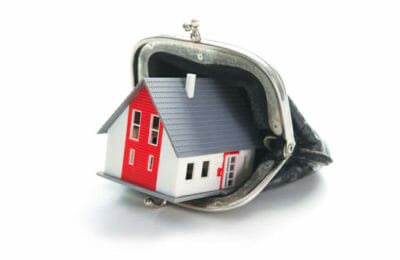If you’re a landlord, there might be times that one or more of your properties is vacant. You may be renovating or decorating a home between tenancies. You may be having problems finding suitable new tenants. Or you may be trying to sell the property. Whatever the reason, you may be asking yourself: “Do landlords pay Council Tax on empty properties?”
What is Council Tax?
It’s worth having a quick recap on what Council Tax is.
Council Tax is a local taxation system in the United Kingdom used to fund services provided by local authorities. It is levied on domestic properties, such as houses and flats, and is collected by the local council.
The amount of Council Tax payable is based on the valuation band of the property and the local council’s tax rate. Each property is assigned to one of eight valuation bands, from A (the lowest) to H (the highest), with the band determined by the property’s value as of 1st April 1991, in England and Scotland. In Wales, the valuation date is 1st April 2003.
Council Tax is not levied on commercial properties. These are subject to a different form of taxation called business rates. We look at whether landlords pay Business Rates on empty properties later on in this article.
Who pays Council Tax for a rented property?
Normally, a tenant is responsible for paying Council Tax on a rented property. There are some exceptions. For example, landlords of Houses of Multiple Occupancy (HMOs) usually pay the Council Tax but pass on the cost to individual tenants via the rent. In addition, if all the tenants are under the age of 18 or are asylum seekers, the landlord is responsible for paying the tax.
Who pays Council Tax on empty properties?
If a residential property is empty, the landlord is responsible for paying the Council Tax. However, there are various exemptions and rules that apply, depending on how long the property has been vacant.
If a property is vacant for a short time, many local authorities will give landlords a discount or exemption. For example, if a property is occupied and unfurnished, Colchester City Council offers a 28-day full Council Tax exemption, while Chelmsford City Council offers a discount for up to three months. If a furnished property is empty, landlords normally have to pay full Council Tax. This is because many of these properties are second homes or are let out as holiday homes.
Indeed, in many areas, having empty furnished properties is getting very expensive. Last year we reported that second homes in Wales can face up to a 300% Council Tax increase. Authorities in other parts of the UK are following suit. To return to the example of Colchester City Council, from April 2024 this authority is proposing to slap a 100% additional premium on second homes that are mainly used as holiday accommodation. This will payable whether the property is empty or occupied.
Council Tax on empty properties that have been vacant for a long time
If your property has been vacant for two years or more, then you can be charged a Council Tax premium. For example, if it has been empty for over two years, some authorities will charge double the tax. This could rise to 300% after five years and 400% after ten. The amount will depend on the local council.
Exemptions on paying Council Tax on empty properties
There are some exemptions on paying Council Tax on vacant property. You don’t have to pay council tax on empty properties if:
- You’re in prison (unless it’s for non-payment of a fine or of Council Tax)
- You’ve moved into a care home or hospital
- The property has been repossessed
- The property has been bought by compulsory purchase and will be demolished
- It’s illegal to live in the property (e.g. it’s derelict)
You can also sometimes get a Council Tax discount if a property is undergoing major repair work or structural changes. In these cases the local authority will give you a ‘completion notice’, telling you the date from which you have to pay the tax.
Do landlords pay business rates on empty properties?
If you are a commercial landlord, your property is subject to Business Rates. When you have an tenant occupying the building, they will normally pay Business Rates. If the property becomes empty, the landlord becomes liable for them.
Commercial properties are subject to ‘empty property relief’. This means that you don’t have to pay business rates on property for three months from the date it becomes empty. After this time, you have to pay the levy in full.
In some instances you can get extended empty property relief. These include:
- Industrial premises – these get another 3 months’ relief
- Listed buildings – eligible for the relief until they’re reoccupied
- Buildings with a rateable value under £2,900 – eligible until reoccupied
- Property owned by charities – if its next use will be mainly charitable
- Community amateur sports club buildings – if the next use will be mainly as a sports club.
If a property is partly empty, your local authority may also offer business rates relief for the part of the property that is empty.
Summary – paying tax on empty property
As we’ve seen, landlords are generally responsible for paying Council Tax on empty properties. If the property is unfurnished and empty, you may get a short period (usually 28 days) during which you don’t pay Council Tax. When a property has been empty for two years or more, you can end up paying several times the normal rate of Council Tax.
If you have empty furnished property, you’ll still have to pay Council Tax. Indeed, in many areas, owners of second homes and holiday lets have to pay a significant Council Tax surcharge. These surcharges are becoming more common across the UK.
Finally, if you are a commercial landlord, you can get three months’ relief on Business Rates for empty properties. With few exceptions, you then have to pay Business Rates until you can find another occupier.
Property taxation can be complex. As a landlord, you need a specialist who understands the intricacies of your field. That’s where our team of dedicated Landlord Tax Accountants at THP come in. We are experts in property taxes and specialise in maximising your returns and minimising your obligations. Why not get in touch today?
Our buy-to-let tax professionals will ensure you’re using all available allowances, deductions, exemptions, and relief measures specific to landlords. We stay up-to-date with the constantly changing tax laws, so you don’t have to worry about missing out on potential savings. With our personalised tax strategies tailored to your unique circumstances, you can spend less time worrying about taxes and focusing more on your property investment strategy. Why not get in touch today?
About Ben Locker
Ben Locker is a copywriter who specialises in business-to-business marketing, writing about everything from software and accountancy to construction and power tools. He co-founded the Professional Copywriters’ Network, the UK’s association for commercial writers, and is named in Direct Marketing Association research as ‘one of the copywriters who copywriters rate’.












